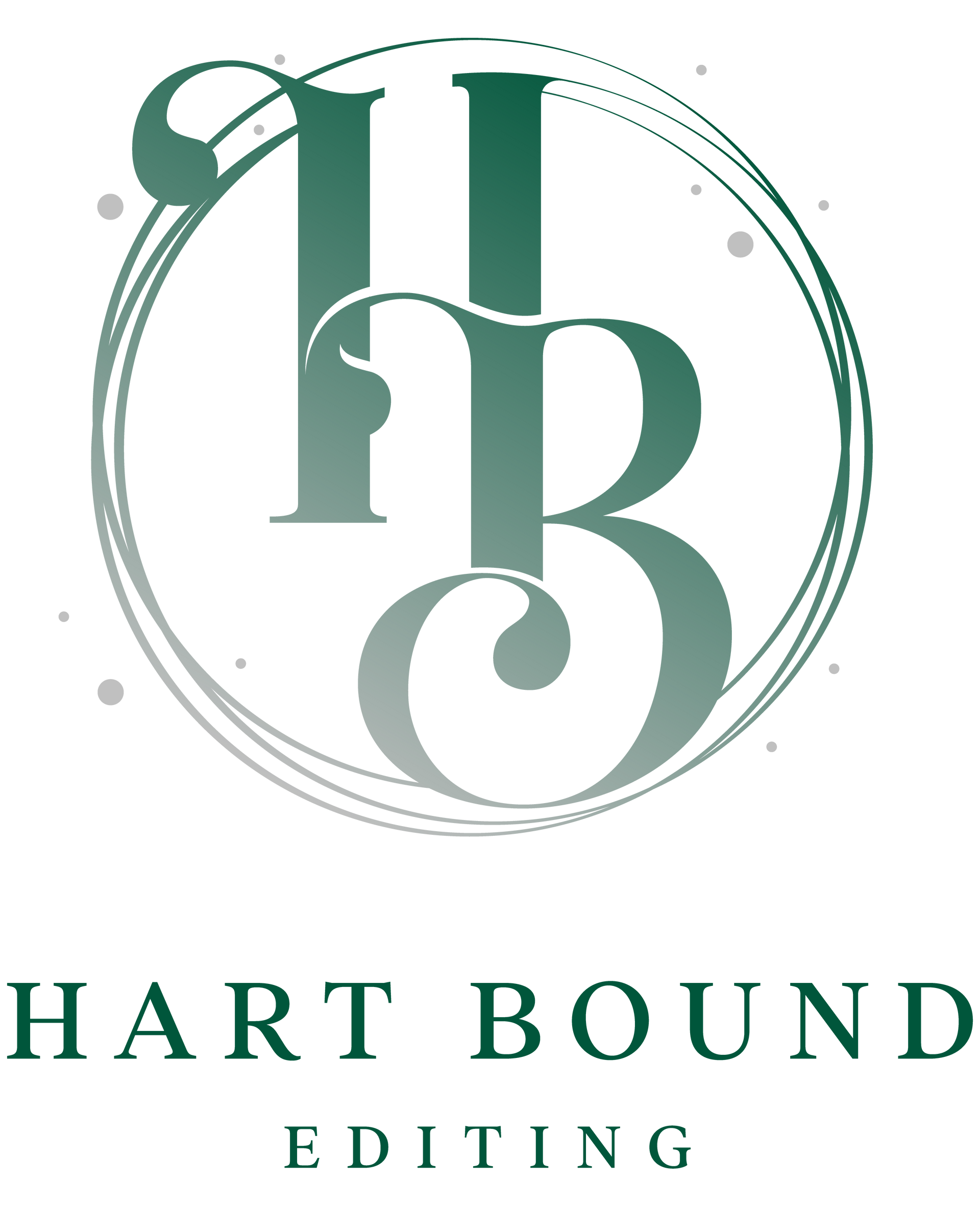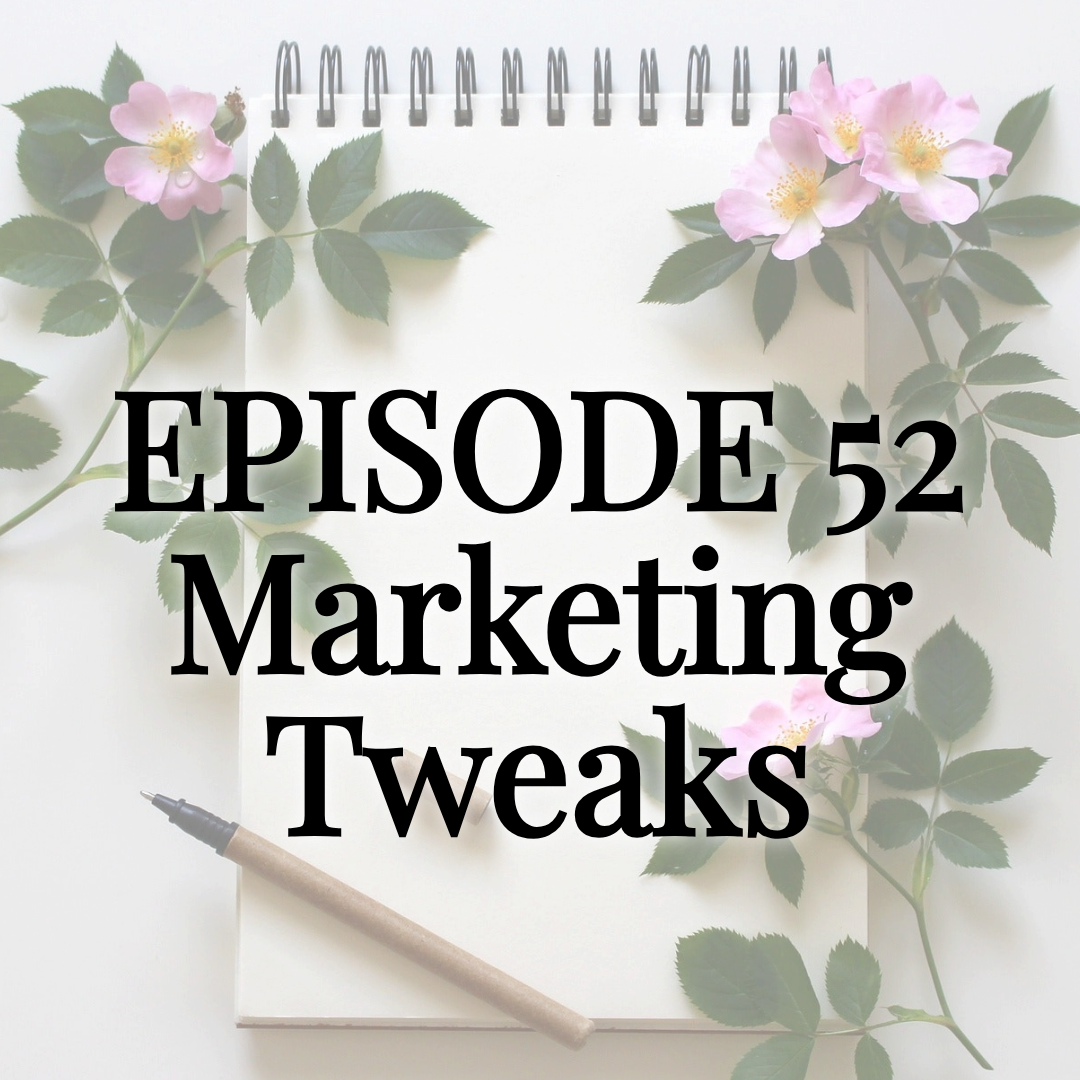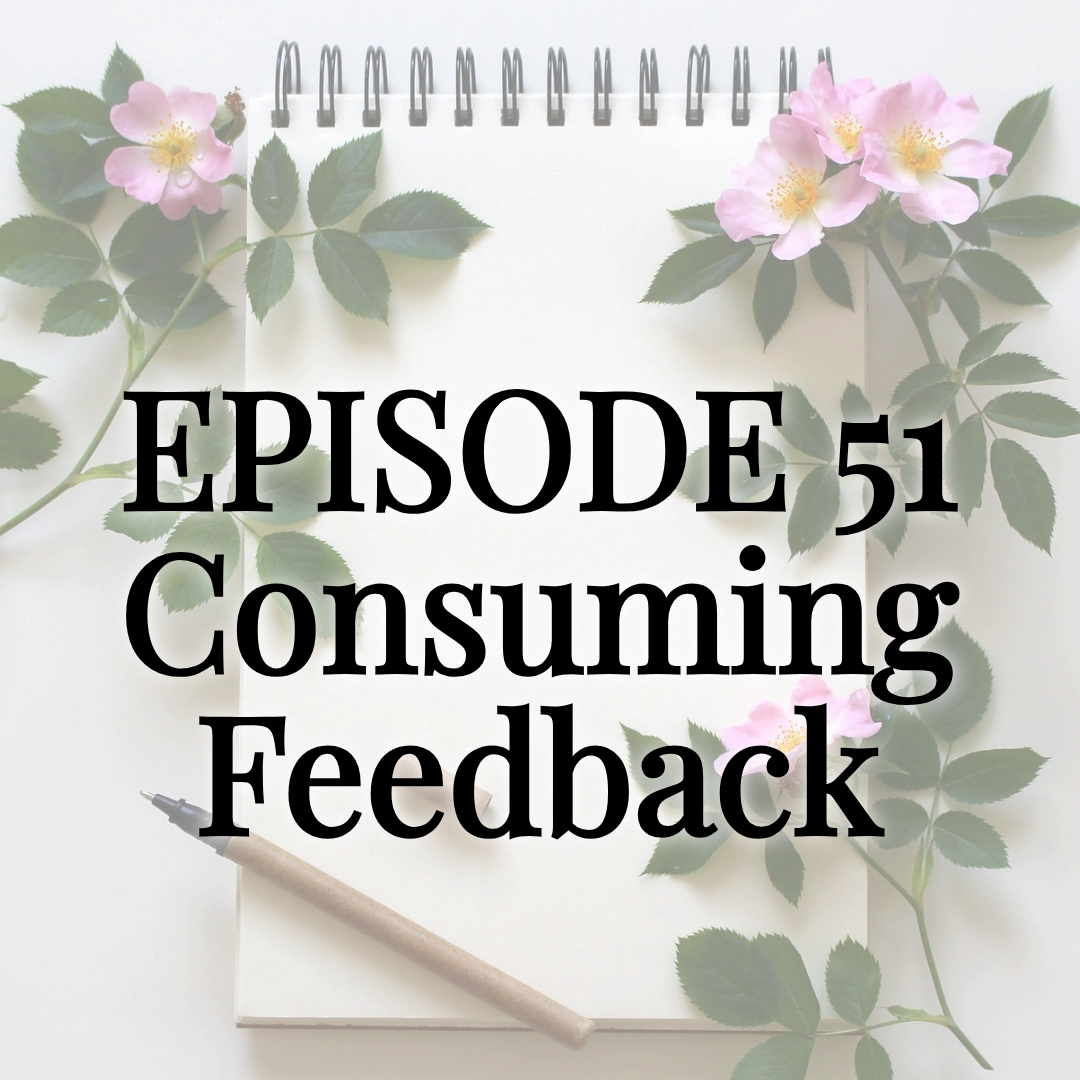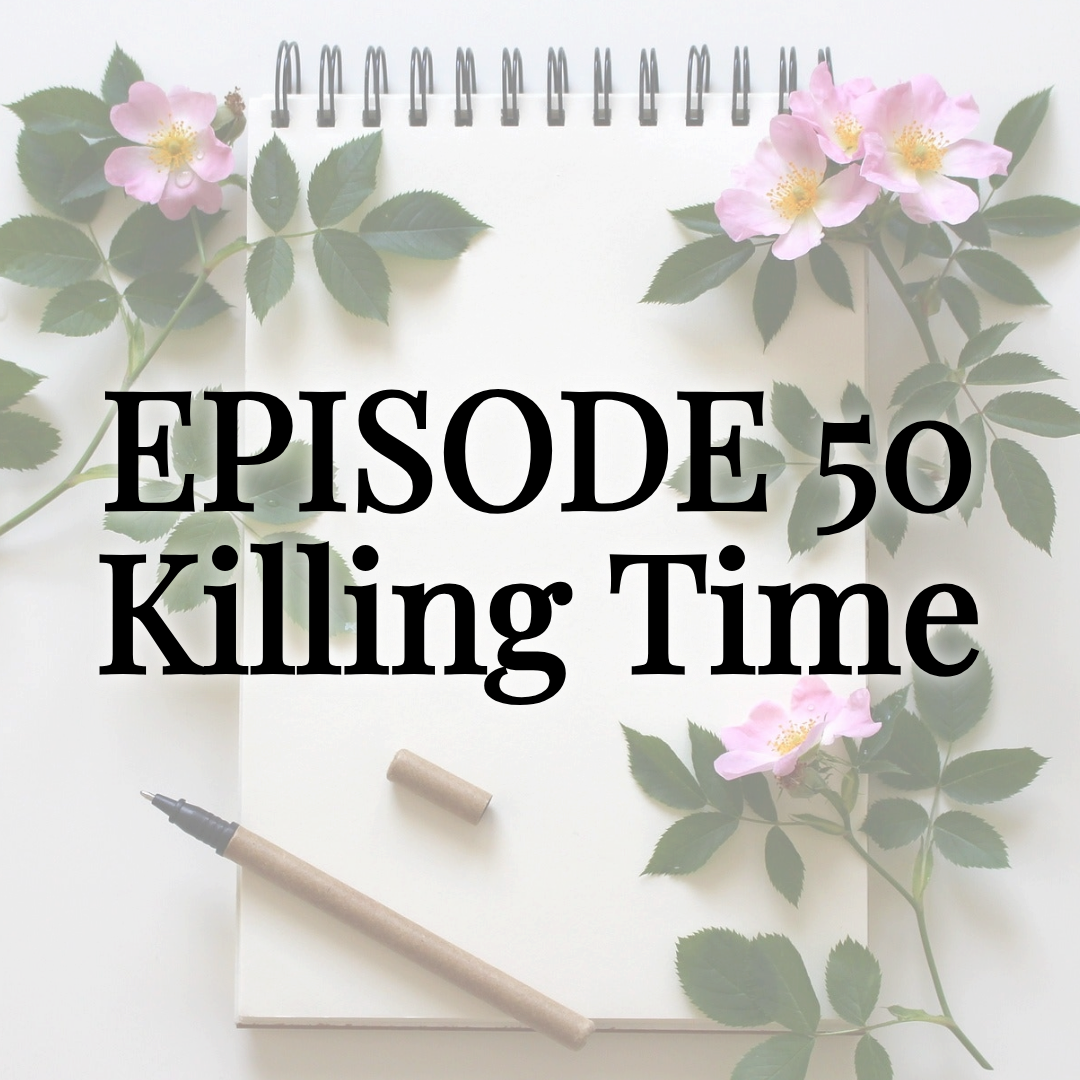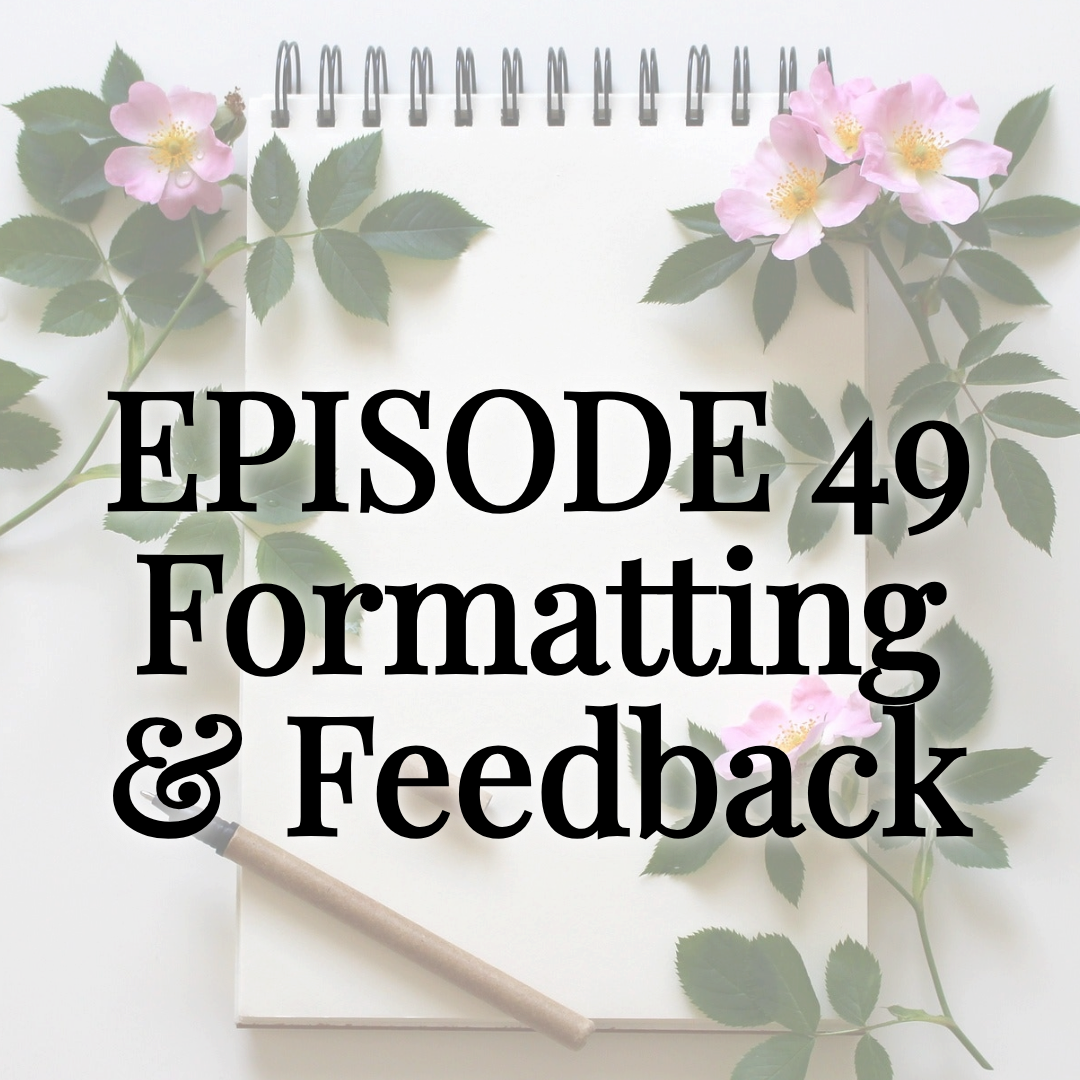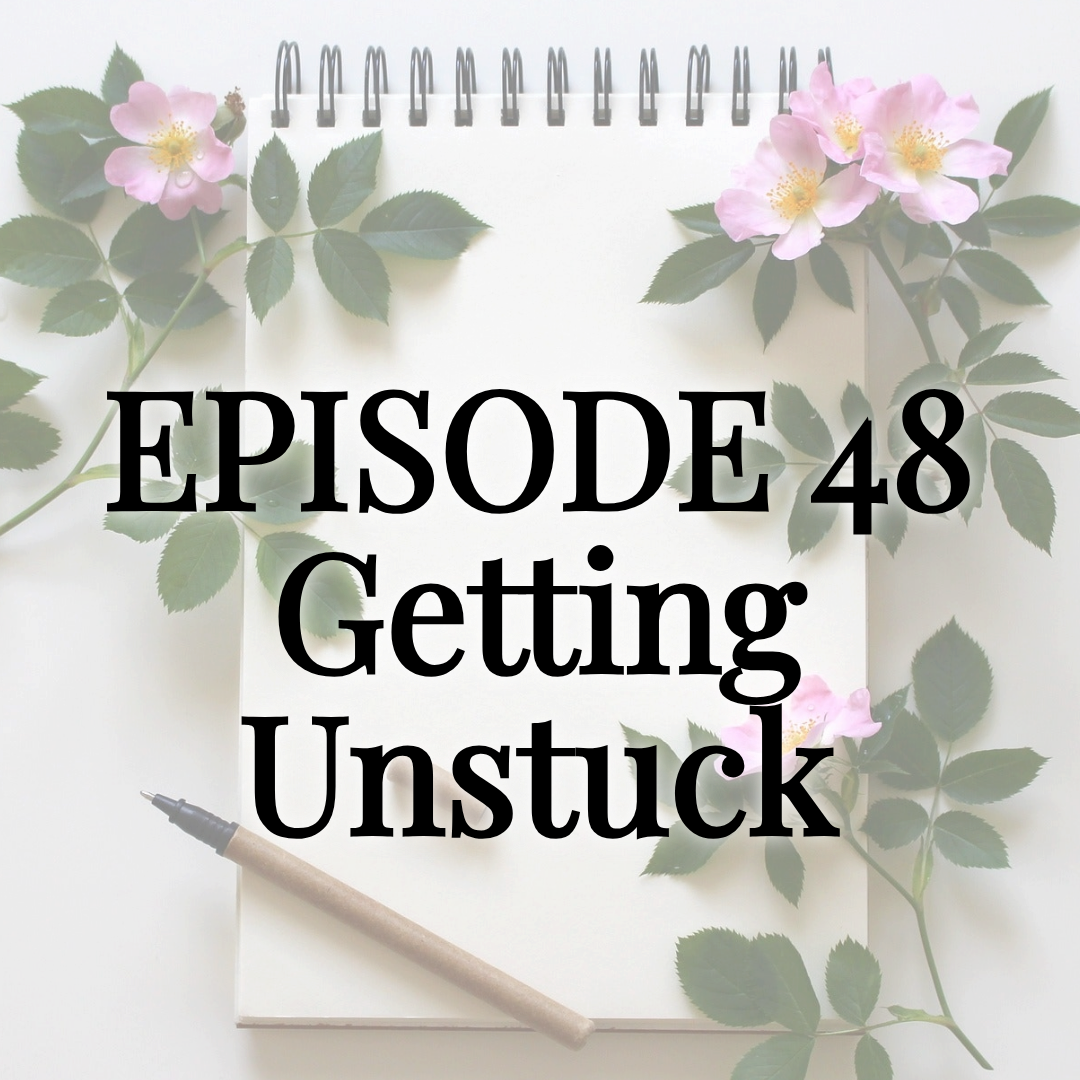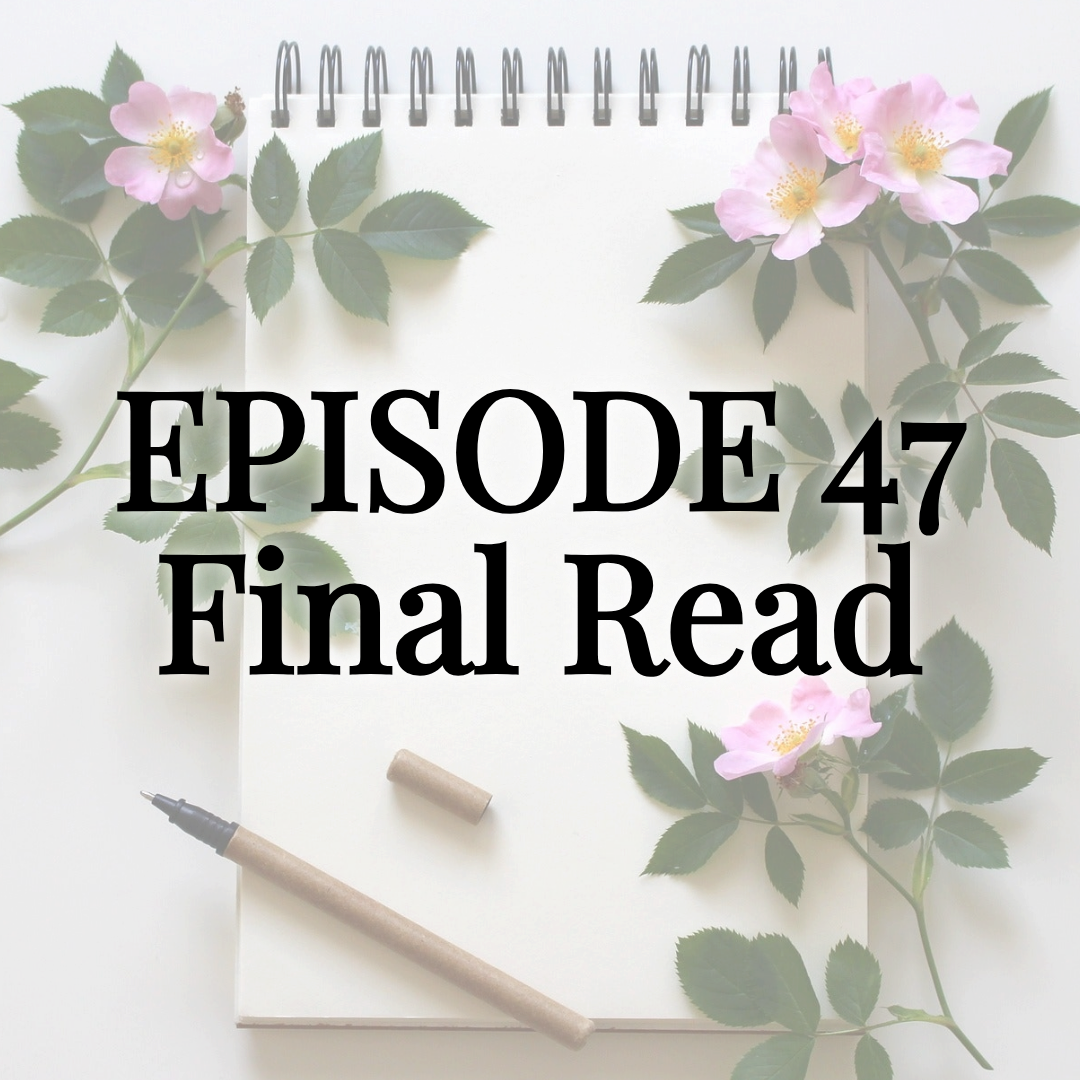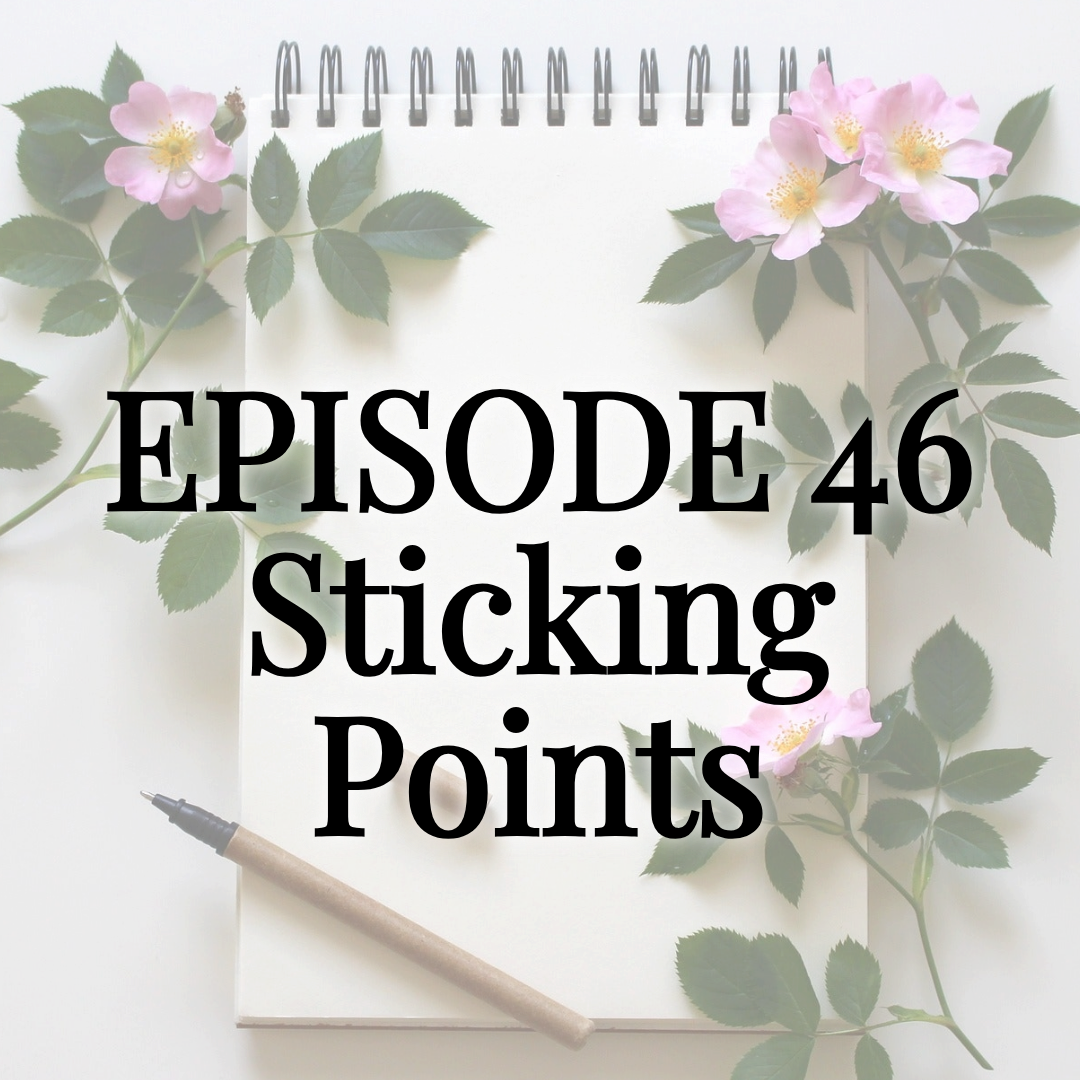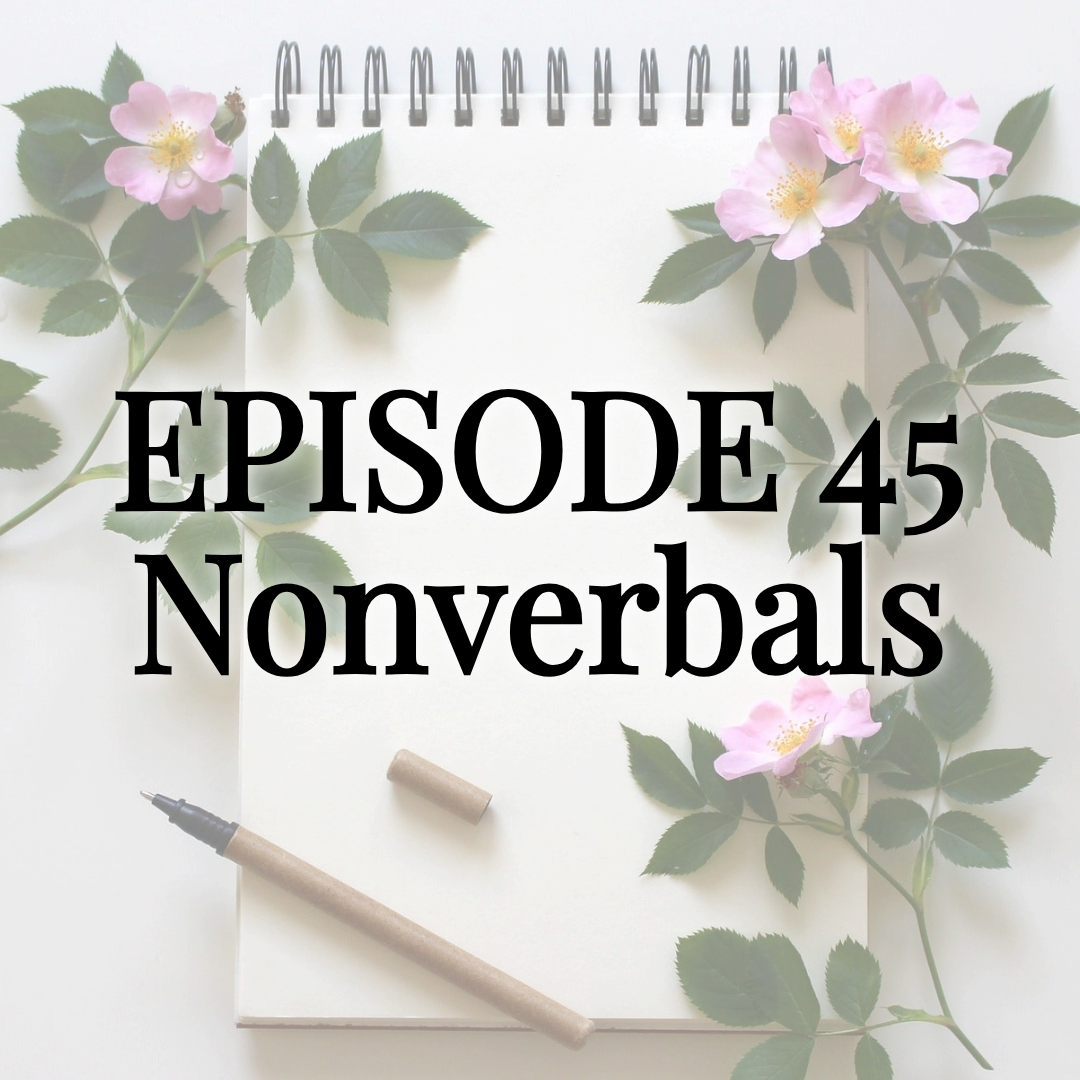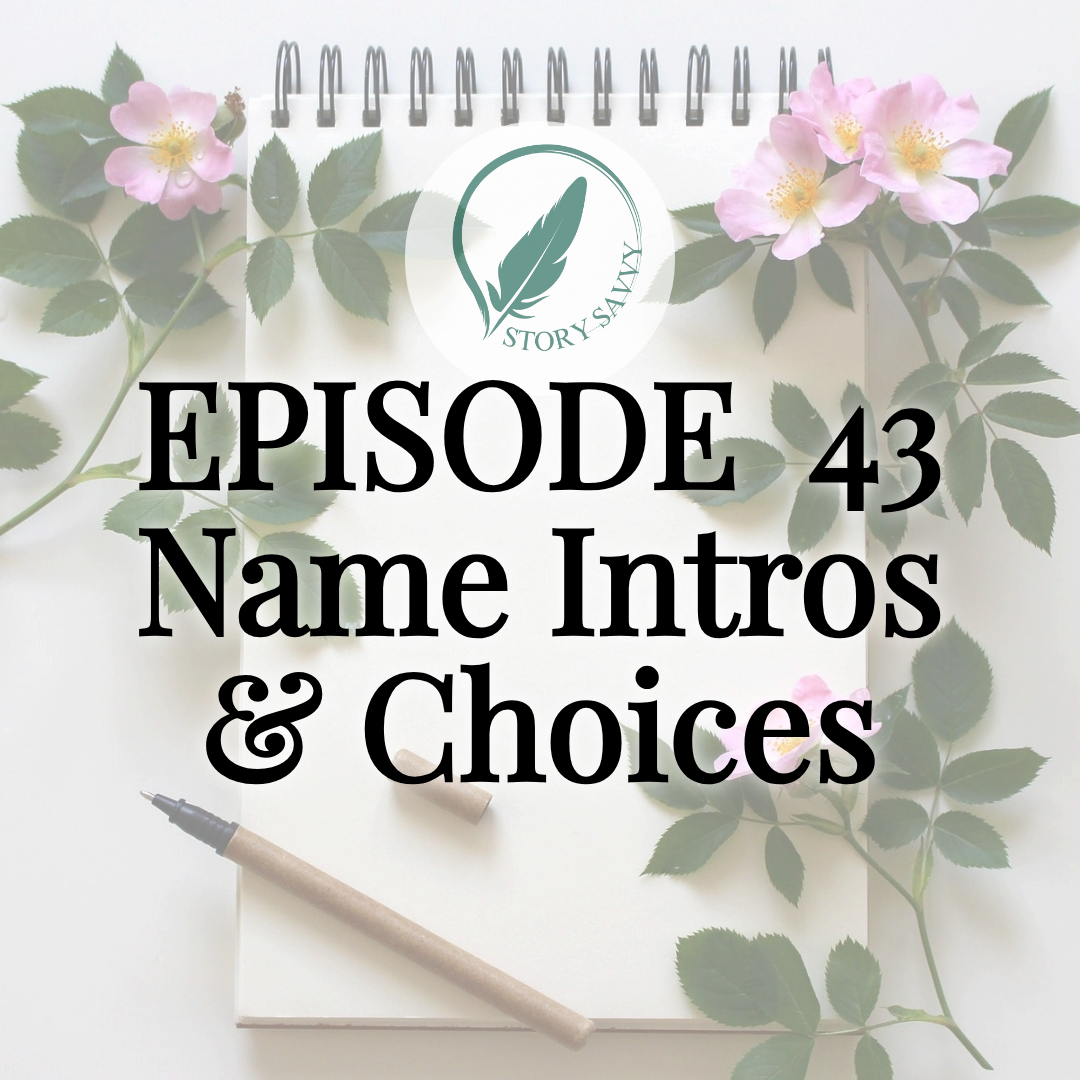Fact-Checking Research: Story Savvy Self-Editing Episode 12
Fact-Checking Research: After-episode thoughts, overview, and transcript...
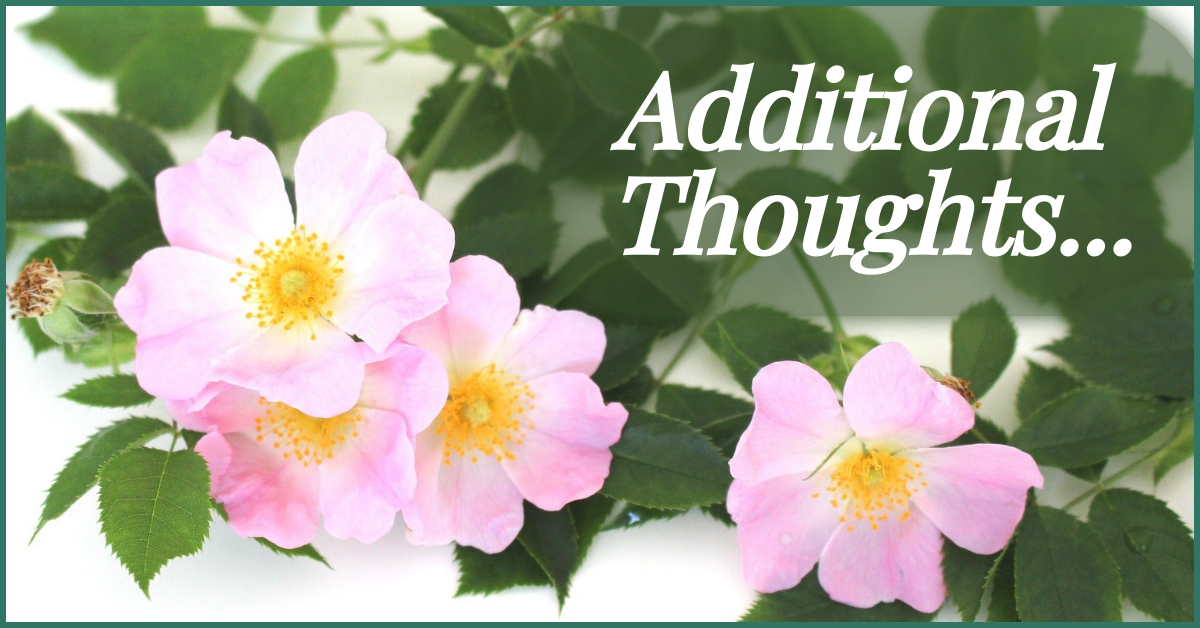
I remembered the term I couldn't think of when recording! The Dunning–Kruger effect is the fascinating cognitive bias in which people with limited competence in a particular domain overestimate their abilities. If you are interested, I highly recommend learning more about it from those far more qualified on the topic than I am.
Happy editing!
Episode 12 Overview:
Fact-Checking & Sensitivity Research
"What do I need to research more for my story? How and where should I do so? And do I really need to do much or any if I'm writing fantasy?"
Today, I teach you what every writer should know about how to do research for your novel, including how to make your story more believable and when & how to research for accuracy as we explore how to improve story writing skills in this latest episode of the 52-Week Story Savvy self-editing series.
Rebecca Hartwell, founder of Hart Bound Editing, joins aspiring author Agnes Wolfe from Authors’ Alcove to dig into research expectations for different genres, how to strengthen weak spots in world building, and how to fact-check your story without getting bogged down in endless details.
In this episode, Rebecca breaks down why fact-checking for sensitivity and to plug plot holes matters—even in fantasy—and how to figure out when and where your story needs more research. She offers practical advice on making sure your setting, characters, and plot feel authentic and immersive without overwhelming the reader.
In This Episode:
- Why even fantasy writers need to research their worlds
- How to spot knowledge gaps and avoid factual errors
- When too much research slows down your writing process
- The biggest research mistakes writers make—and how to avoid them
- How to respectfully portray different cultures and historical settings
- The fine line between creative liberty and historical accuracy
- Practical research strategies for busy writers
Whether you’re trying to nail historical accuracy, develop realistic cultures, or improve your anatomical choreography in romance, these insights will help you research smarter and write with confidence.
Recommended Resources:
- Authors’ Alcove Membership Site – [http://authorsalcove.com]
- Book Giveaway – [http://authorsalcove.org]
See you next week for episode 13: Pacing—Rises and Falls!
Episode 12 Transcript:
Fact-Checking & Sensitivity Research
Rebecca Hartwell: Hello and welcome to the Hart Bound Editing Podcast. This is episode 12 of the weekly Story Savvy series, where we tackle the 52 biggest self-editing topics and tips to help you make your good story great as an aspiring author asks me, a developmental editor, all of the questions that you've wanted to.
We have covered a bunch of topics in this series so far, including last week's episode on creating forceful and effective forces of antagonism or villains.
Today, we are going to talk about fact-checking our fiction stories, especially in the self-editing sphere. So, by the end of this episode, you will hopefully feel confident identifying where you need to do more research or shore up your facts, how and where to do that research, and how to apply what you find (or choose not to.)
Joining me today to ask all of the questions is my friend and co-host, Agnes Wolfe.
Agnes Wolfe: Hi! I'm an aspiring fantasy author who hopes to release her first middle grade fantasy later this year and also host and founder of Authors' Alcove. As always, I am super appreciative that I get the opportunity to ask all of these great questions that I've always wanted to ask a developmental editor, and so this is a great opportunity. Thank you very, very much.
But I'm here today to tackle plugging fact and reality plot holes in genre fiction. So, I wanted to start off by asking: at what stage should we begin our research?
Rebecca: Ideally, in the planning and plotting stage. But if you are past that at this point (or a pantser), then my recommendation is not too early on in the editing process.
I ordered this topic in this series where I did because this is where I suggest you do this step in your self-editing process. So, generally somewhere between any huge plot or character-level reworking, which is perhaps less objective (kind of depends on how you approach that), but before you end up having to tweak or shift some of your plot points based on the research that you do in your research checks, and your fact checks.
Agnes: So, what if we already know a lot about a topic? How would we know that maybe we need to research a little further?
Rebecca: Sometimes the point isn't just to get facts correct, but also to explain it to the reader if it's not common knowledge. I've been guilty of this in my own work. I have edited quite a few books where you could tell the author was super knowledgeable about something but wasn't great at remembering that their audience probably wasn't. And I've gotten really good feedback about that from my external readers: so, beta readers, dev readers, whatever I've got working with me.
So doing a few minutes of research, even on stuff that you already know a lot about, can help you gauge whether or not it's common knowledge, and, if you feel the need to explain it, how you might do so with maximum clarity and brevity.
Agnes: So, I remember us having a conversation way back when, and you know quite a bit about horses, and I remember you talking about how this particular book that we had read, there was some distracting information in that particular book. I don't know, it looks like you remember which book that was.
As authors, I think we all have some blind spots about what we truly know and what we don't actually know. How can we help find those facts that we might think we know more than we do about?
Rebecca: Great question. Yeah, that's definitely one—for starters, that's one of my niches. Horses are one of my niches. The cheap answer to your question is outside feedback. Even casual readers can really help with catching those spots, and that's part of why I always recommend you have multiple beta readers or alpha readers or whatever you decide to use.
And there are also topic experts—like I am, on horses or historical clothing—who specialize in their niches and can go through your book and not only spot where the issues are but do that research for you and correct them so you're going to be accurate with a lot less effort on your part.
I know that it's a huge thing in police procedurals, for example. That whole genre is pretty well known for having retired police officers, for the most part, just on speed dial to call them up and be like, "Hey, is this how police procedures actually work? Because that is my genre, the people who are reading my books, I know, are going to care about this topic, I need your help.” So outside feedback is the easy answer there.
If you are just doing this on your own—so if you don't have the option of outside feedback—then one of the options that you have is to check through some reader groups, ideally specific to your genre or subgenre, and see what people are complaining about inaccuracies around.
Google might also be able to help with this, too. But once you find those common complaints or topics to check, like anatomy or horse riding are two of the most common ones that I've seen, then do a quick glance through your book to see where you mention that topic, flag those, and just double-check using whatever research tool you want to that, you know, a five-minute Google search isn't going to contradict you. That you are at least making some attempt to get that correct. And again, as I'm sure you've heard in research advice, your local library is definitely a resource to bear in mind as well.
Agnes: So, doesn't writing fantasy kind of get me out of having to do all this research if it's magical?
Rebecca: Yes and no. That was certainly my hope when I started writing fantasy. Didn't turn out that way.
There are still rules to the world. Your world, any world that you read or write, you just get to establish what they are and where they do or don't match reality that we live in or know from history, which is always going to be the default when a reader starts reading.
So, some things, like how horses and tack and riding work, tend to be true to any reality regardless of how you're writing it, just as one example of places where fantasy doesn't get you out of it. The advice of “know the rules before you break them” very much applies here. And more than that, it's very helpful to your readers if they know the rules of your world before your magic system starts breaking them. However closely or distantly that mix ends up happening.
Agnes: I know actually some of the feedback I got from you on my own [book] was about some of the world-building. Mine is very kind of vague, like, a pre-technology era. So, what are your thoughts on that? Do I need to choose a time frame and research it, or can it be just vague?
Rebecca: I recommend that you do. That you pick some form of starting point reality. That’s often picking a decade and a location from history if you're not writing modern.
Everything post-apes living in trees—and even them, to some extent—is a technology level. You can't really say “pre-technology” because humans have always had technology. It might have been Stone Age technology, or Bronze Age technology, or early medieval, but they had some form of technology, and your reader is going to make assumptions around that.
A big part of this is immersion. You want to immerse your readers in smells, and sights, and sounds, and the scale and style of their village. Establishing, "Hey, this is set in 10th century Romania," is a shorthand to give them so much of that immersion.
Another consideration is that when you establish something like this—and you don't have to say it's set in 10th century Romania—but if you give them some idea like, "Hey, this is roughly medieval," or "roughly Victorian," or "roughly 1980s," that is going to allow them to make so many more correct assumptions without you having to tell them. If you set some sort of baseline, then when you mention something and don't give details, they can make correct assumptions about what you intended or what they should be picturing, that sort of thing.
Clearly knowing what rule base you are starting at before breaking them with the fantasy parts is needed. If you want to take your fantasy world way outside of anything that has actually existed, you still need to have a starting point.
So, specifics and details are immersive. Picking an answer can help with so many things without you having to think about them or research them or explain them—like what people are wearing or how they're getting around and how they are eating and everything else. So for all of these reasons, I personally highly recommend that you pick a starting point before building your world on it.
Agnes: That was actually one of the things that I realized when I was reading your feedback. You had mentioned these things, and I had a vision—but I was not portraying what I was envisioning. It made me realize I'm not necessarily doing research on a particular era, but research on how other fantasy novels actually portray that particular thing. When I was creating my world, I did not realize I was doing this, but I chose some of my favorite books, and that was the era.So I realized, "Oh, maybe one of the things I need to do when I'm doing some of that world-building to make sure that it's more consistent and that I'm giving my readers a visual is actually rereading some of those books that are set in the same time frame that I had in my head when I had written them."
Rebecca: And it doesn't have to be super specific. You don't have to base it on 1892. But basing it in the “late Victorian” [era] might be helpful. Or for a lot of high fantasy, early medieval or high medieval is totally acceptable.
You don't need to narrow it down further than that, but it needs to be that narrow, if that makes sense.
Agnes: Yes. So, another thing for me—because I write with mythical creatures, but I often take the concepts of others. How much research should we actually do for mythical creatures or things like that that are not fully based in reality?
Rebecca: In my opinion, only enough to make sure that you aren't using a certain term in a confusing way.
So, for example, if you were trying to call small cat-like pixies “ogres” in your world building, that would be very confusing. But beyond that, the fun for you and the reader is making up your own unique rules and details for your story in your world around those things.
I'll be honest, I see this question a fair bit in a lot of my reader or writer groups and kind of laugh when I see people asking things like this because it seems to imply that they think that there's some universal encyclopedia out there. Like you can go to a dictionary and look up exactly what an aardvark is. They think that there's some overruling guideline about what vampires are and what gnomes are and all this kind of stuff, and there isn't. And like I said, the point is to let your creativity come through in these things.
While it's good to know what's expected from genre expectations, or, vampires kind of have to have a thing for blood, that's what makes them a vampire, as well as knowing what's being overdone so that you don't fall into just recycling a very tired version of that. Then yeah, taking creative liberty and ‘make believe’ in doing whatever you want with these things I think is exactly what you should do.
Agnes: So, I know there are certain things that I have strayed away from, but so my question is when referencing other time periods or different cultures specifically, how can we be assured that we are portraying it in a respectful way?
Rebecca: Great question. So, at the most basic, just spend some time researching those aspects, be it LGBTQIA representation or Black characters featured in a book written by a non-Black author, really heavy or traumatic topics, or anything else.
In this case, I specifically suggest doing so through books rather than on the internet and from resources (in either place) written by people inside that culture rather than on the outside looking in. There are also groups that you can bring questions to, like the Facebook groups Writing with Social Awareness or Free Emotional Labor Club. They are both fantastic. I recommend them for this. I specifically suggest using those groups' search function within that group and reading through what others have already asked and answered about a particular topic rather than asking the same question afresh which those groups have already addressed dozens if not hundreds of times.
Lastly on this topic, sensitivity readers are a thing. You can find those for free or as a service.
I have used one for my own work because I was writing about a trans secondary character and I wanted to make sure that I was doing that respectfully as someone who isn't trans. And again, it's important to find readers who not only just specialize in that area of cultural sensitivity or identity sensitivity or whatever else you're working with, but ideally who are members of that group rather than someone who has studied it from the outside.
Agnes: I definitely agree with that, the sensitivity readers and things like that. I have an adopted daughter, and one of the things that I realized early on when I was writing some nonfiction was that a lot of people wanted me to write from an adoptive parent's perspective. But the one thing I realized is that I can't write from an adoptive child's point of view because I'm not an adopted child. And having raised one, I realize that there are a lot of things that I don't think people—especially even as a foster parent, which I was, an adoptive parent—are aware of because you're not there. You can't be. You can ask your child, but as a writer, we need to be very curious and compassionate. We need to be willing to ask the questions. And sometimes they can be hard questions to ask.
Rebecca: Yeah, and I will say on this topic—not directly related to this episode's topic—but there's a difference between trying to write the stories of someone whose experience you don’t share and simply representing them.
So, the classic example that I've seen is that it's great to include people of color in your stories as a white author. That representation matters. But you're probably not in a position to write a story about living in the world as a person of color if you aren’t part of that group.
That’s a line that I see some authors getting mixed up with, especially on the sensitivity front. You don’t have to be queer to write about a cast that includes queer characters. But if you want to write a story about being a queer person in a world that isn’t accepting of that and finding queer love, then you might need to take pause and reconsider.
Agnes: That makes so much sense. So back to some of the other questions: what are the biggest mistakes authors make when they actually take the time to do the research? Do they add too much detail and still get it wrong somehow?
One thing I’ve been thinking about as we’re talking about this is that I read somewhere that people who are in the bottom 20% of knowledge on something tend to think they are in the upper portion, while those in the top 20% tend to think they are in the 50th percentile.
So, we often don’t know what we don’t know. So, I’m just bring that up, but my actual question is: what are the biggest mistakes authors make when they actually do the research?
Rebecca: Oh, I did actually know the term for that phenomenon at some point! I can’t think of it at the moment, but oh my lord, I have experienced so much frustration in my life because of it.
So, to answer the question specifically: first and foremost, trying to find a way to use all of this cool information, these lovely little factoids that you've collected, regardless of how relevant or important they actually are, is the number one mistake.
Second to that: not assessing how much a research topic actually has value in their genre and how much those genre-specific readers are going to care about it is another mistake that I commonly see. For example, while blood-typing or fingerprints might be fascinating in a medical drama or a police procedural, in contemporary romance, the likelihood of it not seeming weird, or boring, or unnecessary is pretty slim. So, for example, historical romance readers want all of the clothing details. They want to hear about the corsets and the feathers and the coaches and all of these things. However, in sci-fi, readers want to go deep into tech and aliens and different planets. But both of those special interests and spaces for these details will lose your readers in most gritty thrillers. So, knowing what people want you to go into detail about, or would be accepting of you going into detail about, is important.
The third mistake that I commonly see is… I believe it’s a mistake when authors don’t consider removing the mention of the things being researched completely as an option. Sometimes—and probably more often than new authors think—when your options are either going to be: provide a fair bit of detail and description to make something make sense or remove it, the right option might be just to take it out completely rather than putting in half a page to explain your choice to include it or exactly how you did.
The fourth mistake is making too many excuses for themselves and the research that they're doing. For example, if your climax hinges on your protagonist using binoculars to see something, then you really need to set your story in a time (or at least a technology level) that has already invented binoculars—and also had them around long enough that your protagonist, in whatever situation they're in, has access to them. So, it’s not like this obscure thing that five people have a pair of. Saying, "Oh, it's only 50 years before the invention of binoculars. It's close enough," isn't going to cut it with your readers. And especially in historical fiction, your readers are history buffs. You can't really get around that. And using the hat pin craze, 40 years early, is not going to cut it with your readers, kind of thing. Again, just consider what your genre is into, what they are open to, and respect your readers in that regard, I think is what I want to say here.
Fifth, and the mistake that I'm most guilty of on this point, is getting off topic by chasing down rabbit holes and side topics and using that as an excuse to let my forward momentum in editing completely drop off. And I've wasted a whole day. So not a mistake on the story front, but definitely on the ‘trying to get things done’ front.
Lastly, be careful about your character voice and tone when adjusting things based on your research. If you aren't careful about this, you can end up with, for example, like a Cockney cabbie in 19th century London sounding like an astrophysicist, which does not make sense. But he mentioned something about a supernova, and now you need to explain what that is to your reader through him, and that doesn't make sense in his voice. So that can be really off-putting and worth bearing in mind.
Agnes: Thank you. I think a lot of what you're talking about is making sure you're respecting the reader and what they're expecting.
Rebecca: And the material that you're writing about, too. You want to respect the topics that you are presenting.
Agnes: And what they're expecting, too. Like, because, you know, I'm not going to care as much about like a multiverse from, because I'm not reading about time, I'm not a big into time travel. Whereas somebody who's reading sci-fi, they're going to be really into wanting to know all the little things about all the different ways the universe can go and consequences.
But anyway, I do need to wrap up. I did want to ask one last question: is it possible to do too much research? Which, you kind of just said something about that. Where's the balance between not doing enough research and getting totally bogged down in it past the point where the time and effort is no longer worth it?
Rebecca: Your genre is going to have some impact on this. Fantasy; probably one end of the spectrum where you have to do a minimal amount. Historical romance, stuff like police procedurals, probably more than any other genre.
But as a general rule of thumb, I recommend a five-minute rule for moments or mentions, for the most part. So, if it's one mention of, oh, you know, they got on their horses and rode to their new house, spend five minutes on how you would attach luggage to a horse. Or one mention of, oh, he ripped her bodice off and they made, you know, passionate love or whatever. Spend five minutes researching whether the dresses of that time and place open to the front to the back. So, five minutes can get you a lot of leeway with your readers in most genres.
If it's a global aspect, so your whole world-building is based on this time or place or culture that you don't belong to, so you need to research, then do as much as you feel you need to without doing so much that that research and those facts overshadow the story that you [a reader] are being told. So do as much as you need to to fill it out and make it vibrant and concrete and all of these things. But if it starts reading like a dissertation on this culture, you've probably gone too far, and you need to dial it back and decide that you've probably done enough there for the moment.
There's a lot of Goldilocks zone in there. But bearing in mind what your priorities are and what your genre priorities are is going to make a big difference.
It shouldn't take you too long to decide if a research topic of a small moment falls into one of these categories that I'll list in a second, all of which are finite and with a Goldilocks zone. So, for most of my readers, I expect these are some great just little things to bear in mind when you're doing these moments of research to keep things productive.
Number one, just scrap the mention because explaining it or getting it right isn't worth it. That is one of the options that your five minutes of research might fall into.
Option two is: you found the right term, wording, or statistic, and you don't need to dwell on it. You've got it right, move on.
Option three is you've gotten stuck on it. And you just need to flag that spot and mull it over before doing another five minutes of research when you circle back around to it because sometimes things just need to simmer.
Option four is doing the research and deciding that this research, this topic, this one spot deserves more in-depth research. In which case you should budget more time to it, more than the five minutes, but not leave it totally open-ended so that you don't end up winding down too many rabbit holes. So, if you decide it needs more than five minutes, that's fine, but tell yourself you have one hour to research this to avoid falling into the whole day wasted like I mentioned earlier that I'm very guilty of myself.
And yeah, pretty much any research that you're doing should take about five minutes and if it doesn't, it'll fall into one of those categories and you can decide where to go from there.
Agnes: Well, thank you so much for your time. I really appreciate how you let me pick your brain. I really appreciate it.
Rebecca: Of course!
Next week we will return to plot and character arcs to talk about emotional rise and fall and how that directly translates into pacing, the all-important pacing.
For now, I want to thank everyone following along with this series. You can help us out by liking and subscribing to the Hart Bound Editing Podcast and the Authors' Alcove Podcast (which I highly recommend) where you can find lots more content for fantasy authors and readers beyond this joint series.
Agnes: I can't wait to start talking about pacing. Thank you very much.
Rebecca: Thank you so much for listening to the Hart Bound Editing Podcast. I look forward to bringing you more content to help you make your good story great, so it can change lives and change your world. Follow along to hear more, or visit my website, linked in the description, to learn how I can help you and your story to flourish.
See you next time!
